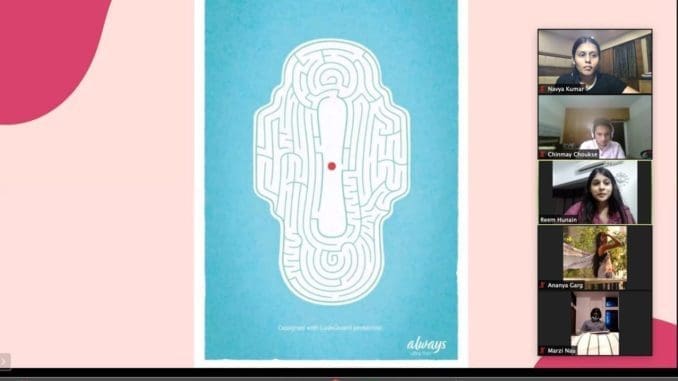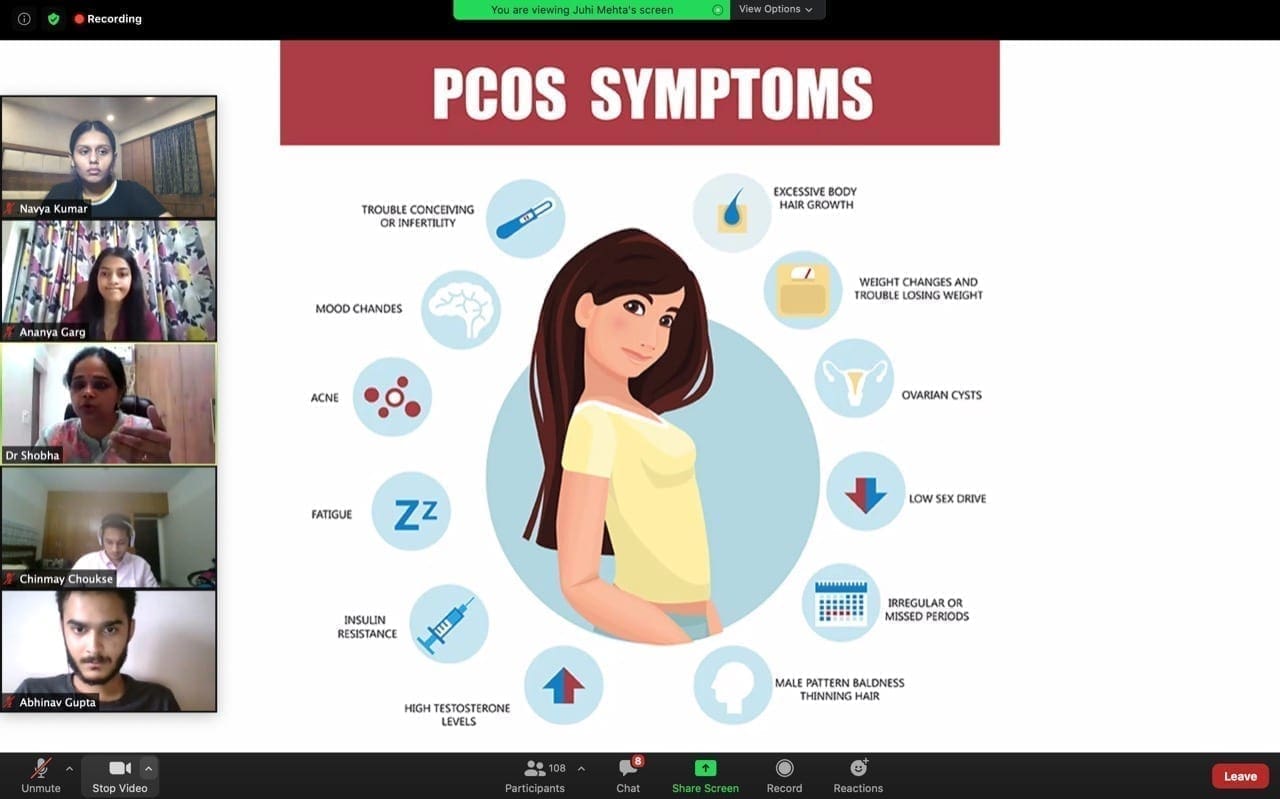
There is no point in worshipping Goddesses if you cannot accept the physiology of a woman. A regressive mindset brings with it heavy stigmas that hush people to not talk about things that are imperative for sustaining. Menstrual blood is the only blood that is not traumatically induced but is still the most hidden one in society. To spread awareness on the topic Youth4Volunteering, AIESEC, Manipal conducted a seminar on “Menstruation Matters” on the 13th of September. The seminar had an esteemed panel of speakers from all walks of life contributing their bit towards the cause.
The first speaker for the seminar was Niraj Gera, Chairperson of Humanify Foundation. His work has been identified by BBC, The Wire, The Tribune to list a few. He discussed the stigma associated with menstruation especially in a country like India where women already go through many vices and crimes. Many women around the world are still forced to use rags, sand, ash, newspapers, making them prone to diseases and infections. There is also a lack of public toilets in schools and workplaces despite the strict guidelines from WHO. Women and girls often face harsh taboos that have been deeply rooted in our society and have never got out of the system. They are termed impure during their cycle and refrained from entering temples, kitchen and even marriages of their sisters in some regions. They are condemned for something so natural which is a basis of the entire universe. Article 21 of the Indian Constitution gives “Right to Life” which includes “Right to Health ” as well but surprisingly 8 out of 10 women in India are not using sanitary napkins. It’s high time we think beyond the limited area of our perspective and work towards debunking the taboos and ensure our women enjoy the freedom they deserve.
The next speaker for the seminar was Dr Shobha Jindal who has been in gynaecology for about 23 years. She is a practising senior gynaecologist HOD at Jindal Hospital.

In her discourse she highlighted another area that needs attention that is PCOS-Polycystic Ovary Syndrome, a metabolic disorder associated with irregularities in periods because of the hormonal changes in the ovaries, resulting them to grow in size and develop cysts. She talked about how the changing lifestyle has brought a surge in the number of women diagnosed with PCOS, the earlier percentage being 4% to now nearing 40℅. The most common symptoms of PCOS include – weight gain, excessive hair growth, acne, insulin resistance bringing people to the edge of diabetes, male pattern baldness to more severe being infertility. Excessive weight gain proves to be a barrier in the treatment of PCOS and therefore the whole treatment is focused on bringing women into the right size profile, which seems to be a difficult task because of the difficulty in losing weight another symptom of the syndrome. A healthy PCOS diet includes a less intake of dairy products and sugar and more of proteins and fibres. The use of fertility drugs is also a prevalent treatment only after consulting a gynaecologist. Due to the nescience about the condition and the reluctance of adolescents to open up to their family, they often start discussing it in their teenage groups resulting in a heap of myths and a sense of turmoil. Consulting a gynaecologist should be the first step to correct the body while nature works in its way simultaneously.
The third presenter in the seminar was Reem Hunain, who works as an intern at KMC, Manipal. She is a World Youth for Heart member and former General Secretary of the student council KMC, Manipal. She threw light on the importance of menstrual hygiene management. Women nowadays have acknowledged the need for cleanliness necessary during periods. They have understood how to manage it with dignity and not with discomfort or fear. Menstrual Hygiene Management stands on pillars of social support, knowledge, skills, facilities of water and sanitation. Elucidating the topic further, she spoke about the theory of Disgustology-What people find disgusting and the social implications. According to disgustologist- Dr Val Curtis, Indians are majorly disgusted by menstrual blood just like urine, sweat, vomiting and decay portraying social development in our region, making us a subject of mockery all over the world.
The media has played an important role in awakening women who earlier thought that it was something wrong with their periods after seeing advertisements of sanitary pads showing blue stain. Always, a brand of sanitary napkins, in 2011, for the first time showed red mark, which followed several celebrities like Courtney Cox, advertising tampons and menstrual cups, a break-through in educating women about menstrual hygiene. The anatomy of the vagina is such that, it has high absorbance due to which the pH of the organ has altered, making it a ground for pathogenic bacteria. The only problem associated with tampons is that it has high chances of infection and therefore needs to be changed within a few hours. The same goes for menstrual pads and menstrual cups that need to be changed frequently and washed with water and soap to avoid infection. Thus, to avoid, the risk of cervical cancer and to sustain healthy womanhood, menstrual hygiene is not something we can be naive.
The last speaker for the seminar Riya Jain, Co-founder of The Whatup Foundation, talked about PMS- Pre Menstrual Syndrome, a commonly used term for irritability and mood swings associated with periods. A typical PMS would cause sudden crying spells to rage to being normal in just fifteen minutes. However, there’s a limit to what we can call PMS. At times we tend to ignore certain serious mental illnesses, coming to our conclusions of PMSing. There are certain cases where people have felt secluded, reluctant to connect with their family, unable to express their pain because they thought nobody would understand it and nobody cares, they thought of it to be an outburst due to periods failing to understand that PMS doesn’t last for half a month. These women in future could have suicidal tendencies if the word of awareness on the subject isn’t correctly directed towards them, differentiating mental health disorders like Borderline Personality, Bipolar Disorder, Schizophrenia from an ordinary PMS.
There are certain places where the first time a girl gets her period is celebrated in a way no less than a marriage, but there is a much bigger world where the unnecessary discomfort is a root cause for various violations of the rights that women should enjoy. While there is a part that has evolved and swept away all the irrationality, there is still a part that is encouraging these baseless myths and problems putting on a pedestal the school of thought that needs to be abandoned.

Be the first to comment